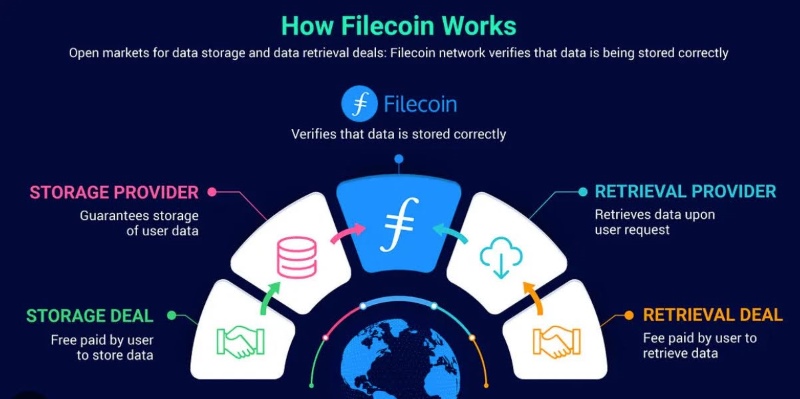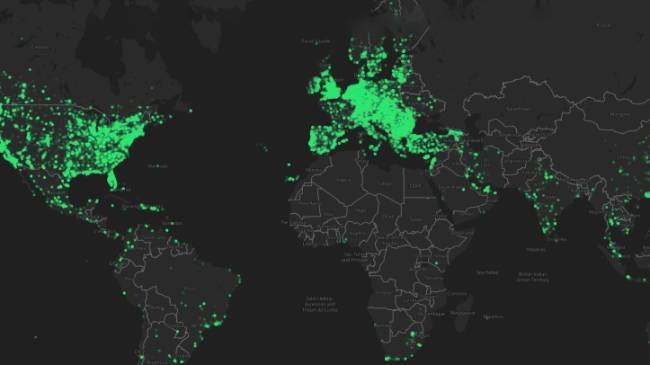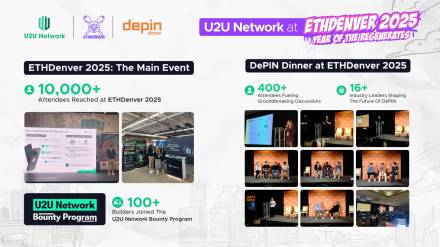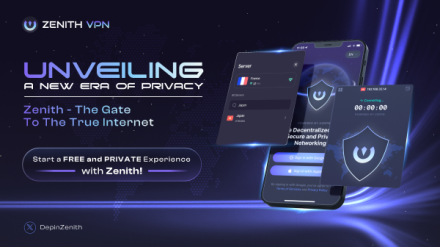The world of decentralized physical infrastructure networks (DePIN) is burgeoning, offering innovative solutions to long-standing challenges in connectivity, storage, and resource sharing. In 2024, several DePIN projects have captured attention with their groundbreaking approaches and potential for real-world impact. In this article, we'll delve into outstanding DePIN projects. We'll examine their unique value , technological underpinnings, and the role they play in reshaping the way we interact with the digital world. Let's explore!
Table of Contents
What is DePIN project?
Traditionally, physical infrastructure such as data networks, transportation systems, and electrical grids have been controlled by centralized organizations. DePIN projects aim to revolutionize this model by establishing peer-to-peer networks where individuals contribute their resources and share control, similar to how Airbnb leveraged the power of community in Web2.
By utilizing blockchain technology and cryptocurrency rewards, DePIN projects foster active community participation and give users decision-making power through decentralization. This approach offers increased transparency, reduced reliance on single authorities, and enhanced resilience against failures. Furthermore, as collective decision-makers, the engaged community can manage the platforms more flexibly and efficiently, promoting growth and value within the network.

Outstanding DePIN projects in 2024
DePIN Helium project
The Helium Network, launched in 2019, is a pioneering decentralized wireless network built on blockchain technology. It empowers individuals and devices to connect to the internet while rewarding participants who contribute to its infrastructure with HNT, the network's native token. It thrives on community ownership and operation, fostering a more democratic approach to connectivity.
Helium's initial success with its LoRaWAN IoT network inspired a global movement, leading to the deployment of nearly a million hotspots by hundreds of thousands of individuals. Building on this momentum, Helium is expanding beyond IoT into CBRS-based cellular networks and future WiFi networks. This adaptable approach aims to revolutionize wireless network development, making it more cost-effective, efficient, and accessible for all.
To earn cryptocurrency with an IoT hotspot, you can purchase a Helium hotspot device. This device acts as a node on the Helium network, providing wireless coverage to IoT devices or 5G cellular devices. By contributing to the network's coverage and relaying data, hotspot operators are rewarded with HNT tokens.

DePIN World Mobile project
World Mobile is a global connectivity platform that is revolutionizing internet access for underserved communities. By combining blockchain technology, renewable energy, and a sharing economy model, it offers affordable, high-quality connectivity solutions.
The platform leverages both existing infrastructure and innovative technologies, such as utilizing "TV white space" for data transmission in certain regions.
Founded by Micky Watkins in 2018, World Mobile operates as a decentralized network, where decisions are made by the community of users and participants. Users can actively contribute to the network's growth and earn World Mobile Tokens (WMT) as rewards.
DePIN World Mobile project Network is built on a shared economy model powered by the WMT token. It comprises three types of user-operated nodes:
- Earth Nodes: Responsible for core network functions, including authentication, identity management, blockchain operations, and telecommunications services.
- Air Nodes: Provide coverage and internet access directly to users.
- Aether Nodes: Connect to traditional telecommunications operators to bridge the gap between legacy systems and the World Mobile network.
World Mobile has deployed over 1,700 Air Nodes worldwide, expanding its reach and impact on global connectivity.

DePIN Filecoin project
Filecoin is a decentralized storage network that leverages blockchain technology to create an open market for cloud storage. It enables users to pay miners to store their data securely and reliably over time while miners compete to offer the most competitive prices for storage space. This unique system incentivizes miners to provide storage and earn rewards in the form of Filecoin (FIL) tokens based on the amount of storage they contribute.
Developed as a decentralized alternative to traditional cloud storage providers, Filecoin aims to revolutionize the web by creating a more secure and efficient marketplace for data storage. The open-source project was founded by Protocol Labs and Juan Benet, with financial support from various venture capital firms, angel investors, and an initial coin offering (ICO) in 2017.
Anyone can become a storage provider on the Filecoin network by setting up a mining rig and connecting it to the network, renting out unused hard drive space to earn FIL tokens. The Filecoin network is governed by a decentralized community of users who participate in decision-making through a consensus-based process, upholding the principles of transparency, decentralization, and open-source collaboration.
The FIL token has demonstrated a bullish trend over the past year, gaining over 11% despite occasional volatility. This growth suggests increased market confidence in the token.

DePIN Grass project
Grass, a groundbreaking crypto project by Wynd Network, empowers users to monetize their untapped internet bandwidth by connecting their devices to its network. This innovative platform challenges the traditional model of centralized proxy providers, which often exploit users' resources without compensation. Grass aims to democratize the market, directly rewarding users with tokens for their contributions and granting them a voice in governance decisions.
A key highlight of Grass's beta version is the introduction of Grass Points, an incentive mechanism designed to encourage user engagement and community expansion. By actively using the app, browsing the internet, and referring friends, users can accumulate these points. The referral system boasts a generous commission structure, offering 20% on points from direct referrals and 10% and 5% from second and third-level referrals, respectively. In the future, the project plans to introduce additional point-earning opportunities based on milestones and uptime. Users can conveniently track their points and access referral links within the app.

DePIN Akash Network project
Akash Network is a Layer 1 App-chains platform - a decentralized cloud computing network that facilitates the secure and efficient exchange of computing resources between users. Built on the Cosmos SDK and secured by a Proof-of-Stake consensus mechanism, Akash offers developers a high-speed, cost-effective solution for deploying decentralized applications, including DeFi apps, blogs, games, and other blockchain components.
Unlike traditional blockchain networks, Akash does not rely on mining. Instead, users earn rewards by participating as validators, securing the network, or contributing computing resources.

To engage with the Akash Network, you can become a provider of computing resources or deploy decentralized applications on the platform. This allows you to leverage the benefits of the decentralized cloud computing marketplace, gaining access to a wide array of resources at a fraction of the cost of centralized providers.
The DePIN projects explored in this article represent a glimpse into the transformative power of decentralization in the realm of physical infrastructure. As DePIN continues to gain momentum, it's clear that it has the potential to transform how we access and interact with physical infrastructure. By embracing decentralization, community ownership, and innovative technologies, DePIN projects are paving the way for a more inclusive, efficient, and resilient future. To learn more about exciting developments in the DePIN space and explore potential investment opportunities, visit the website U2U Network.





.png)
